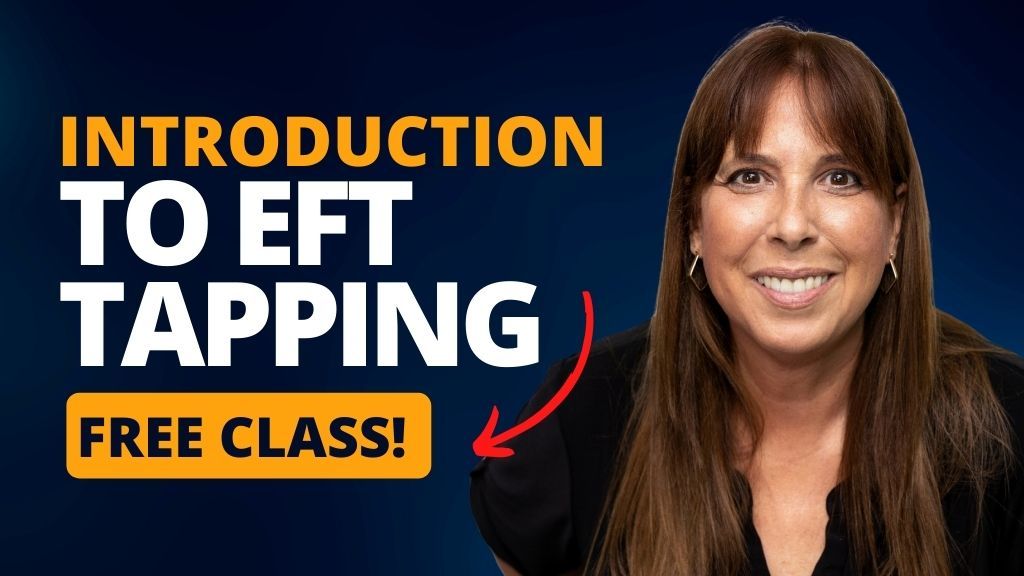Not All Heroes Wear Capes. Some Do EFT Tapping.
With the right EFT training, you’ll have the tools to help people heal from pain, trauma, and lifelong patterns that hold them back. Here’s a look at what you’ll be able to do as a Certified EFT Practitioner.
Write your awesome label here.
Write your awesome label here.
Write your awesome label here.
Write your awesome label here.
What Is EFT Tapping?
Emotional Freedom Techniques, or EFT Tapping, is a gentle yet powerful process that combines modern psychology with the ancient principles of acupuncture. By tapping on specific meridian points while focusing on an emotion, memory, or belief, EFT helps release energetic disruptions that cause stress and emotional suffering.
As a Certified EFT Practitioner, you’ll learn how to guide clients through this process to release emotional pain, shift limiting beliefs, and restore inner balance. The results can be life-changing for those struggling with emotional and physical challenges alike.
As a Certified EFT Practitioner, you’ll learn how to guide clients through this process to release emotional pain, shift limiting beliefs, and restore inner balance. The results can be life-changing for those struggling with emotional and physical challenges alike.
With Your EFT Training, You’ll Be Able to Help Clients With a Wide Range of Issues
EFT for Trauma
EFT for Anxiety
EFT for Depression
EFT for PTSD (Post-Traumatic Stress Disorder)
EFT for Phobias
EFT for Cravings & Addictions
EFT for Weight Loss & Emotional Eating
EFT for Physical Pain
EFT for Autoimmune Disease
EFT for Limiting Beliefs
EFT for Sexual Trauma
EFT for Learning Disabilities (Including Dyslexia)
EFT for Performance
EFT for Self-Esteem & Self-Acceptance
EFT for Perfectionism
EFT for Painful Memories & Inner Child Healing
EFT for Manifestation & Mindset
EFT for Money Blocks & Financial Anxiety
EFT for Relationships
EFT for Grief
EFT for Sleep & Insomnia
EFT for Stress
EFT for Kids & Teens
Why EFT Certification Matters
While EFT may look simple, using it as a professional requires comprehensive EFT training.
Through the Center for EFT Studies, you’ll receive accredited instruction that teaches you the art and science of EFT.
You'll learn how to guide clients safely, handle complex cases, and create real, lasting change with any client who comes your way.
Through the Center for EFT Studies, you’ll receive accredited instruction that teaches you the art and science of EFT.
You'll learn how to guide clients safely, handle complex cases, and create real, lasting change with any client who comes your way.
I am happy to say that EFT is the missing piece I have been looking for. I can heal my own issues and help others heal theirs.
I loved tapping the first time I tried it. I am in awe of it. What an amazing, life-changing experience.
Thank you Deborah for this amazing course and new way of life.
I love what I do!
I am so in love with this work! It is amazing to be able to help so many people so quickly and profoundly! So thank you Deb!!!! What an amazing journey it has been.
Deanna McCormack
Why Study with Deborah Lindsey
Deborah Lindsey is one of the true pioneers of EFT education, with more than 25 years of hands-on experience and over 5,000 students certified worldwide.
Her programs include advanced trauma-informed EFT training, exclusive modules on sexual trauma, and specialized instruction for chronic illness through Instructional EFT (IEFT).
Whether you’re new to EFT or advancing your professional practice, Deborah’s mentorship helps you build the skills, confidence, and clarity you need to help others—and yourself—achieve freedom and peace.
Write your awesome label here.



